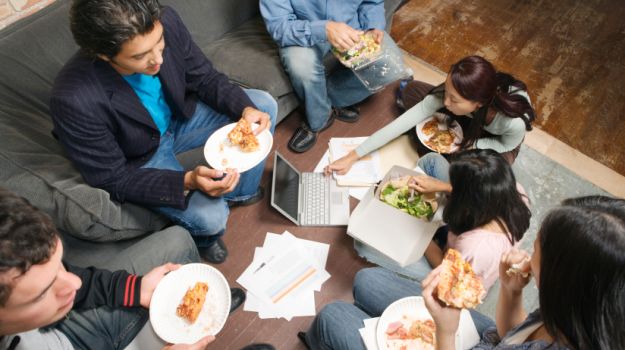"Eating together is a more intimate act than looking over an Excel spreadsheet together. That intimacy spills back over into work," said study's author Kevin Kniffin.
"From an evolutionary anthropology perspective, eating together has a long, primal tradition as a kind of social glue. That seems to continue in today's workplaces," Kniffin explained.
Given the findings, organizations would do better to consider their expenditures on cafeterias as investments in employee performance, Kniffin said. Over the course of 15 months, Kniffin and his colleagues conducted interviews and surveys in a large city's fire department, which included more than 50 firehouses.
The researchers asked the department's 395 supervisors to rate on a scale of zero to 10 the performance of their platoon compared to other fire companies in which they've served. The supervisors were also asked how often the platoon eats together in a typical four-day workweek.
The platoons which ate together most often also got higher marks for their team performance. Conversely, the platoons that did not eat together got lower performance ratings. In interviews, firefighters said daily group meals were a central activity during their shifts. In fact, the researchers noted, firefighters expressed a certain embarrassment when asked about firehouses where they didn't eat together.
"It was basically a signal that something deeper was wrong with the way the group worked," Kniffin said.
The study is published in the journal Human Performance.








